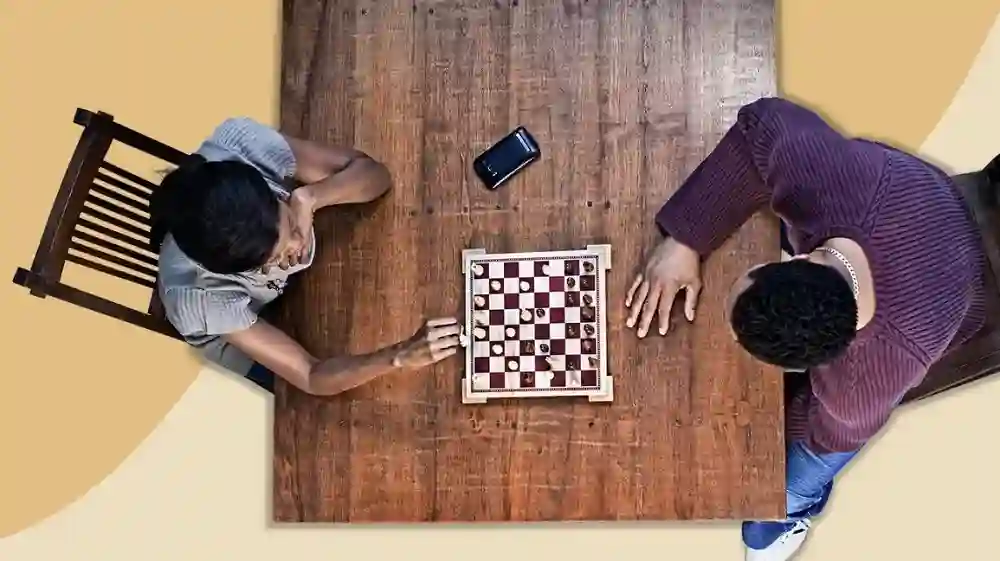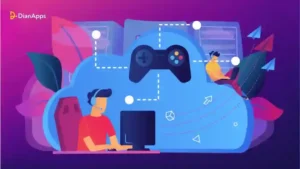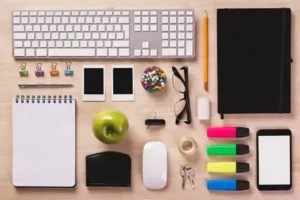Why Puzzle Games Are Perfect for Boosting Brain Power

I can still hear the quiet click of the mouse. A puzzle game loaded up on my screen—again. I thought, “Okay, let’s see if this is really as good for my brain as people say it is.” Fast forward through three failed attempts to complete the first level—I eventually realized something. Puzzle games? They’re not just time-fillers. They’re brain-boosters, folks. And the more I dove into them, the more I understood why they’re perfect for keeping your mind sharp.
What Exactly Makes Puzzle Games So Brainy?
Here’s the thing. Puzzle games don’t just sit there and make you kill time. Oh no. They’re working hard, pushing your brain to think critically, make decisions, and—wait for it—remember stuff. As someone who’s spent their fair share of late nights playing Sudoku in a caffeine-induced haze, I can tell you: those numbers don’t just stay on the page. They stick in your head. And that’s what makes these games so powerful.
The Mind Behind the Puzzle Games
- Memory Booster: Ever tried recalling the solution to a puzzle a few days after? Suddenly, you’re not just recalling numbers—you’re recalling patterns, sequences, and strategies.
- Problem-Solving Ninja Moves: Ever get halfway through a puzzle and feel like your brain just hit “pause” on life? That’s the moment when you have to decide: Do I give up, or do I keep pushing? Problem-solving? It’s like the mental gym.
- Focus Game Strong: I’ll admit, I’ve lost track of time playing some of these puzzles—my brain’s attention span was locked in like a laser. You know, the kind where even the sound of the neighbor’s lawnmower doesn’t get through.
Memory Like a Steel Trap… Or Maybe a Cheese Grater?
Let’s talk about memory. You’re probably wondering: “Will playing this make me remember where I left my keys?” Well, I’m not a magician, but puzzle games will definitely help with your memory. Just think about it: Every time you complete a puzzle, your brain is basically giving itself a high five for keeping track of all those details.
Memory Boosters That Don’t Suck
- Connections Everywhere: Puzzle games are like mental tetris. The more you work on them, the more your brain starts wiring itself in ways that stick. You’ll remember things with more ease. I swear I remember more about Sudoku than I do my own phone number.
- Long-Term Retention (Kinda Like That One Friend Who’s Always Late): These games challenge your brain to keep things in its mental library long-term. You’ve seen how an online quiz on Facebook stays with you forever—well, imagine that, but useful.
- Visual Memory? Let’s Go: This is where things get trippy. Puzzle games like matching games are all about remembering visual patterns. I once nailed a 40-piece jigsaw in record time—take that, memory!
My Personal Faves for Memory
- Sudoku: Yeah, I know. Sudoku. It’s everywhere. But I swear, my short-term memory got a massive upgrade from these number-filled grids. It forces me to recall sequences and logic I never thought I could remember.
- Crossword Puzzles: Crosswords? They challenge my brain in ways I can’t even explain. That weird feeling when you remember a word you’ve never used before? You know what I mean.
Mental Agility: The Secret Sauce
This is the part where your brain does the mental equivalent of hitting the gym. Fast decisions, shifting gears, adapting. Puzzle games give your brain an agility workout, no membership fee required.
The Brain Gym: Mental Agility Boosters
- Speed Mode: Some puzzles give you a ticking clock. Hello, stress. But honestly? That’s when your brain turns into Usain Bolt. Every move matters, and every decision counts.
- Decision-Making Mastery: You’ve only got so much info. You gotta decide whether to go left or right and pray you don’t mess up. Not all decisions in puzzle games are made equal, but they’re all necessary.
- Adapt, Adjust, Succeed: Puzzle games get trickier as you go. I mean, what was once a piece of cake turns into a multi-layered strategy challenge. Gotta think ahead, rethink strategies, and be flexible with how you solve things.
Stay Focused… Or, You Know, Try Not to Lose Your Mind
Ah, focus. You either have it, or you don’t. And when it comes to puzzle games, you need it in spades. Trust me, I’ve spent hours trying to match colors in an online puzzle game and suddenly realized I hadn’t eaten all day. Oof.
Why Puzzle Games Sharpen Your Focus
- Detail, Detail, Detail: Most puzzles demand pinpoint focus. Missing the tiniest detail can cost you the win. So, your brain learns to ignore distractions and zone in.
- No More Multitasking (Kind Of): Puzzle games actually train your brain to stay locked into one task. It’s kinda like the opposite of checking your phone while doing literally anything else. (Guilty.)
- Puzzles as Zen: After a while, I found that focusing on the puzzle helped me unwind. I think my brain just needed a break from everything else. I used to laugh at meditation, but a good puzzle can feel like the mental equivalent of “shavasana.”
The Top Puzzles That’ll Turn Your Brain into a Laser Beam
- Jigsaw Puzzles: Sure, they seem old school. But when I was working on a 1,000-piece puzzle one rainy weekend, I could feel my focus level increasing. There was something satisfying about clicking that last piece in place.
- Logic Puzzles: If Sudoku was a test, logic puzzles are the equivalent of a gym membership. These exercises make your brain sweat a little bit—and trust me, it’s worth it.
Problem-Solving, One Piece at a Time
If you’re one of those people who loves to solve problems, puzzle games are like your new best friend. They force you to think critically and get creative with solutions. After all, if you can’t figure out how to match up a few shapes in a game, how are you gonna solve real-world problems? (Okay, maybe not the same, but close enough.)
Solving Puzzles—It’s Like Mental Tetris
- Critical Thinking: Ever been halfway through a puzzle and thought, “Wait, this isn’t working…?” That’s when your brain learns to critically think—how can I pivot and solve this another way?
- Creativity Is Key: Some puzzles, like escape rooms or riddles, will push you to think in ways you’ve never considered. Creativity isn’t just about drawing; it’s about finding new paths to solve the problem in front of you.
- Resilience: My first experience with puzzles? A disaster. But I kept at it—and that’s what these games teach you: If you fail, try again. My first attempt? A total bust. My 20th? Almost perfect. Almost.
A Little Bit of Self-Improvement, a Little Bit of Fun
Puzzle games aren’t just about getting better at mental gymnastics—they can be downright fun. You’d be surprised how much time I’ve spent trying to figure out how to solve one tricky puzzle. And at the end? I’m grinning like a goofball.
Emotional Benefits: The Fun Side of Puzzles
- Stress? Not Today: I’ll be honest, puzzles help me relax after a long day. Not only do they work out my brain, but they take me away from the noise of everyday life.
- Confidence Boost: There’s something about solving a tricky puzzle that makes you feel like a genius. I guess I get a little bit of “Look what I just did” every time I conquer a tough one.
- Mood Lift: You get that dopamine hit every time you complete a puzzle. It’s not quite like eating chocolate—but it’s close.
Puzzle Games Across All Ages: Brain Power for Everyone
I’ll admit: I was skeptical at first. Puzzle games are for kids, right? Not quite. These games are perfect for anyone—whether you’re 8 or 88. I’ve seen grandpa get hooked on Sudoku, and I can’t help but feel proud of him when he finishes a tough one.
Puzzles for Every Age Group
- For Kids: Puzzle games help kids develop early cognitive skills. I’ve watched my niece get better at math just by playing simple number puzzles. (I think I need to ask her for some help on my next quiz.)
- For Adults: If you’re in the working world, you’ll need all the mental agility you can get. And puzzles? They’ll give you that.
- For Seniors: I can’t even tell you how much my grandma loves crosswords. And honestly? I think they’ve kept her sharp well into her 80s. Go, grandma.
Conclusion: Puzzles for the Win
Look, puzzle games? They’re not just for wasting time or playing while waiting for your coffee to brew. They’ve got real, lasting benefits. They boost memory, improve problem-solving skills, help you stay focused, and they can even make you feel like a genius. So, next time you’re wondering how to sharpen your brain, you know where to go. Play a puzzle game. Or 12.







